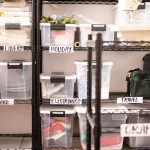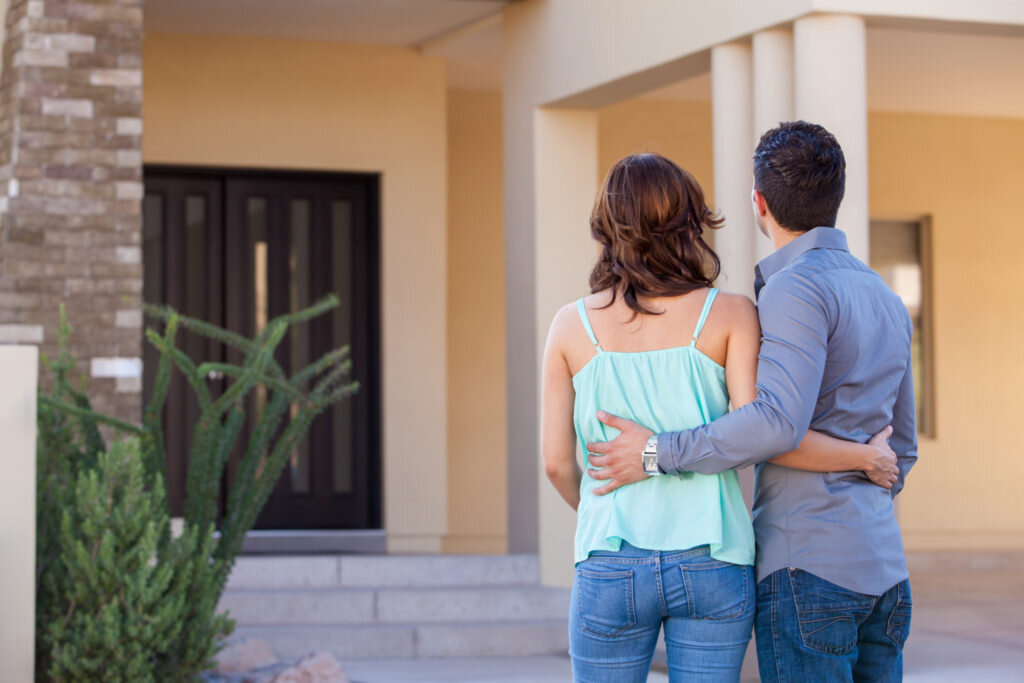For decades, sellers and their agents have been using open houses to help generate interest in their listings. Open houses give the general public the chance to view a home without scheduling a private showing. While open houses do get a lot of curious neighbors and casual browsers, they can be a good opportunity for serious buyers to decide if a home is worth pursuing further, or a way to get a better grasp on neighborhood home values.
In fact, 59% of home buyers attended an open house during their shopping process last year and 43% of buyers said attending the open house was very or extremely important to determining if the home was right for them.* On average, home buyers attended 2.6 open houses before buying.
Whether you’re a sincere buyer or simply curious about the inside of a home, you should know how open houses work and understand how you can be a good open house attendee.
What is an open house?
An open house is an event during which potential buyers can tour a home that’s on the market. It’s usually hosted by the seller’s listing agent, or by the seller themselves, in case of a for-sale-by-owner (FSBO) listing. Open houses usually take place on weekends, during a set range of hours — typically midday.
Open house benefits for buyers
No scheduling required: Unlike a private showing, you don’t need to set up a specific appointment to see a home. Simply show up during the open house hours and view the home at your own pace.
Scope out the competition: If you’re interested in a home, attending the open house can help you gauge interest from other buyers. This can be helpful when determining how quickly you need to submit an offer and how much you should offer.
Understand current home values: Seeing what homes are selling for in your area and what you can buy at a particular price point can be helpful if you’re just starting your search.
Redefine your nonnegotiable home features: Checking out homes in person can help you redefine your list of must-haves: Do you really need that extra bedroom? What does a backyard of this size really look like?
How do open houses work?
Not every seller or listing agent will hold one, but here’s the typical process for sellers setting up an open house:
- The seller and their agent determine a day and time for the open house.
- The agent lists the open house on the local MLS.
- The agent advertises the open house on social media, online and with print ads or flyers.
- The agent prepares for the open house — purchasing refreshments, printing flyers, setting up signs and adding little touches to make the home feel welcoming to buyers. (Yes, as a shopper, you can eat the cookies.)
- The agent hosts the event, greeting buyers and answering questions about the property and community.
- Buyers remove their shoes, tour the home, take pictures and video (if allowed) and jot down important notes.
- Any buyer who liked the house will contact their own agent. They’ll then set up a private showing to see the home again or they’ll submit an offer right away — the latter is common in fast-moving real estate markets.
Who hosts an open house?
The person hosting an open house could be any one of the following:
- Listing agent: As the person hired to sell the home, the listing agent should be an expert on the property.
- Listing agent’s team member or associate: A busy listing agent may also send another agent in their place — either someone on their team or another agent in their office. They should be experts in the local market, but may not be as familiar with the individual home.
- Homeowner: If a home is for sale by owner (FSBO), the homeowner will be hosting their own open house. They’re undoubtedly the expert on the home, but their local market expertise may be limited.
How to prepare for an open house
There are times when you might just stumble upon an open house while you’re on a walk or running errands. But if you’re intentionally looking for open houses as part of your home-buying strategy, try these tips.
Seek out relevant open houses
If you plan to visit multiple open houses in one day, make sure you’re focusing on listings that fit your criteria for budget and location. It’s not worth wasting time looking at homes outside your budget or those that are too far from your work or school.
Tip: With BuyHotFloridaHome’s home search tool, buyers can filter by homes with upcoming open houses (this filter can be applied in addition to other search filters like price, bedrooms, bathrooms, square footage and location). When you use the open houses filter in conjunction with filters for your other criteria, you can easily find the right open houses for your search.
You can also tour most Zillow-owned homes any time between 6 a.m. to 8 p.m., any day of the week — just select the tour option on the listing. Although the listing agent will not be present, you can avoid a busy open house and rest assured the property is in move-in ready condition.
Do research on the market beforehand
With help from your agent or on your own, find out how each home you’re planning to visit stacks up against others nearby. Is the price in line with similar listings in the area? Are there any defects? Has it gone under contract recently and then returned to the market? Are there a lot of other interested buyers? Has it been sitting on the market for a long time? (“Days on market” is an indicator of a stale listing, but the standard number of days on market can vary based on where you live.)
Stay open-minded
If you’re searching on a tight budget in a hot neighborhood, there’s a good chance that the home that fits the bill will need some TLC. Fortunately, attending an open house can give you a better idea of the home’s condition and potential, while also giving you the opportunity to ask renovation-related questions — e.g., the location of load bearing walls and the details of local regulations.
How to attend an open house
Now that you’ve done your research and are prepared to add some open houses to your home search, here’s what you should do once the day arrives.
Ask questions
An open house is your best opportunity to ask the listing agent (or their associate) your questions — don’t be shy. Ask questions that you wouldn’t be able to answer just by reading a home’s listing description, such as:
- What are the HOA restrictions?
- Has the seller done a property tax appeal?
- Have there been any recent renovations or repairs?
Tip: If you’re not currently working with an agent and you ultimately decide you aren’t interested in a particular home you tour, the open house could help you see if the listing agent might be the right person to represent you — many agents represent both buyers and sellers.
Be honest
If anyone other than the listing agent or the homeowner is hosting the open house, they’re likely an agent hoping to find potential buyer clients. If you’re already working with an agent (or if you have no real interest in buying), be honest.
Check for damage and disrepair
Professional or edited photos can make a home look a lot better online than it is in person. At an open house, take the opportunity to closely evaluate a home’s condition and take note of any potential defects that would factor into your offer price.
Assess the windows: Look for flaking paint, misaligned sashes and condensation due to air leaks. These could be signs of windows that need replacement.
Check for water damage: Look for warped baseboards, ceiling stains and musty smells.
Make note of cracks: Noticeable cracks in the ceiling or drywall could indicate foundation issues.
Test functions: Open cabinets, doors and drawers. Run the faucets. Check the water pressure. An open house is a good opportunity to make sure every part of the home is in good working order.
Gauge potential renovation needs: Home improvements can really add up. As you walk through a home, keep an eye out for urgent renovation needs like floors, fixtures or large repainting projects.
Open house tips for buyers
Whenever you attend an open house, put yourself in the seller’s shoes — you’re letting a bunch of strangers walk through your home while you’re not there. While every seller wants their open house to net a buyer, they also want to keep their home safe and their furnishings free of damage.
Do
- Take off your shoes or wear booties if requested.
- Greet the host and provide your name.
- Sign in if necessary or requested (this is a safety issue for the seller and their agent).
- Take notes on your phone about your likes, dislikes and follow-up questions.
- Ask if you can capture a video (if the listing doesn’t already include a video).
- Respect other buyers and guests.
- Wait for others to exit a room before you enter.
- Provide feedback if requested.
- Thank the person hosting the event.
Don’t
- Refuse to comply with an agent or homeowner’s house rules.
- Criticize the home or the owner’s style.
- Listen in on other visitors’ conversations.
- Touch the owner’s belongings.
- Let kids run around without supervision.
- Bring food or beverages in (except water).
- Reveal information that would compromise your negotiating power, like your budget or level of interest in the home.
- Bring pets.






